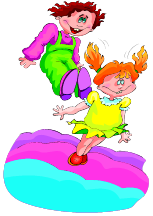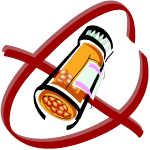THE ATTENTION DEFICIT-HYPERACTIVITY DISORDER EPIDEMIC
Everywhere I go I am deluged with questions about ADHD. Many teachers and parents have been alerted to the symptoms of this problem and are either mystified by the mumber of children being medicated or are anxious to refer to physicians for medication, high–energy children who are not concentrating appropriately on schoolwork.
ADHD AND MEDICATION
A great deal of literature has been prepared to explan ADHD and appropriate use of medication, but that literature is typically prepared by proponents of the use of medication. My bias is not to use medication except in extreme cases and to use behavior management techniques for most other children with ADHD symptoms.
 ADHD is characterized by high energy, difficulty with concentration, distractibility, impulsivity, disorganization, and a large number of the characteristics which are typical of many underachievers. However, all tests for ADHD are observational and behavioral. There are no biological tests for ADHD in children. Many persons conclude that a high score on an observational checklist is the same as a blood test for diagnosing ADHD. They make a jump from observation to biological cause.
ADHD is characterized by high energy, difficulty with concentration, distractibility, impulsivity, disorganization, and a large number of the characteristics which are typical of many underachievers. However, all tests for ADHD are observational and behavioral. There are no biological tests for ADHD in children. Many persons conclude that a high score on an observational checklist is the same as a blood test for diagnosing ADHD. They make a jump from observation to biological cause.
The sysmptoms of ADHD can be caused biologically or they can be caused environmentally. I don’t consider it appropriate to treat these symptoms with medication unless parents and teachers have worked with these children behaviorally. High-energy children have always been harder to parent and teach, but high energy is also (although not always) a characteristic of intellectual giftedness. 
RITALIN
Ritalin is the medication most frequently used for ADHD children. I believe that it is often overused and misused. One teacher of the gifted in Florida reported to me that half her students were taking medication for ADHD. There are side effects of Ritalin for some children like loss of appetite, stomach aches, headaches, tics, and insomnia. Although Ritalin may calm a great many children, it would seem better to me if these children could learn to focus attention and discipline themselves toward motivation. While this may be harder for some children than others, most children can learn these skills. Many ADHD children concetrate well in their ares of interest.
A UNITED FRONT - PARENTS AND TEACHERS
When we work with ADHD children in our Clinic, we find great success if parents and teachers are guided on how to set clear limits for their children. Teaching adults not to overreact and to take charge is helpful. Consistency between parents is extremely important. Attention to the positive is also critical. There are also techniques for teaching children to help themselves to concentrate and avoid impulsiveness and behavior problems. Specific classroom approaches to foster in-seat behavior and withdrawal of negative attention are critical.
CONTROLLING ADHD WITHOUT MEDICATION
In many of the symptoms of ADHD can be controlled behaviorally, medication can be avoided for most of these children. A few of them will need both medication and behavioral help to work to their abilites in school. Teaching these children to be achievers in school is certainly an important part of the cure.
The growing interest in Attention Deficit-Hyperactivity Disorder has caused a serious problem. There has been an overdiagnosing of the disorder by parents, teachers and professionals. It is almost as if Ritalin has been hailed as a magical cure.
 I don’t believe in magical cures. It seems to me we are encouraging too may children to take drugs to make them feel better. Then we wonder why, but adolescence, they seem so tempted to become further involved with drugs which, they say, make them feel better. I have never found Retalin to be a magical cure for Underachievement Syndrome. Underachievement is too complex a problem to be cured by a “wonder drug.” It can be reversed when parents and teachers work together and persevere. The TRIFOCAL Model, which focuses on helping the child and changing both the home and school environments, takes more time than a wonder cure. However, it makes more permanent and less dependent changes in how children achieve and feel about themselves.
I don’t believe in magical cures. It seems to me we are encouraging too may children to take drugs to make them feel better. Then we wonder why, but adolescence, they seem so tempted to become further involved with drugs which, they say, make them feel better. I have never found Retalin to be a magical cure for Underachievement Syndrome. Underachievement is too complex a problem to be cured by a “wonder drug.” It can be reversed when parents and teachers work together and persevere. The TRIFOCAL Model, which focuses on helping the child and changing both the home and school environments, takes more time than a wonder cure. However, it makes more permanent and less dependent changes in how children achieve and feel about themselves.
CASE TESTAMONY
The following letter was written by a parent of a boy who had been referred to the Clinic by a teacher because the teacher thought the child should have Ritalin:
Dear Dr. Rimm:
Just a quick note to share the excitement at our son’s great progress after our visits with you. You gave us many tips such as Daddy being the primary one to “help with” homework, not to dwell on his inability to sit still in class but to tell him, simply, that’s what’s expected of him, and the help we got with your Learning Leads1 cards. Our son did want to try harder to be more attentive and once he knew how important his being the best student he could be was, and that being a student is his most important job, we saw changes. His teacher has publicly said that he’s most improved and he’s getting a “no uniform day” for good behavior for the first time in 3 years.
Our hearts told us that our very active boy was not a candidate for Ritalin despite the suggestion by the teacher. We understood her need for more cooperation and knew this route might be more work and effort for my husband and me but the payoff of not having a child on continuous medication was uppermost in our intentions. And the results were that our parents’ hearts were right! Dr. Rimm, your simple, but most effective techniques prevented another needless case of a child on Ritalin when the alternative was and is so much better for the child. He has learned, we have learned. We’re glad you were there for us and for our son. Thank you, thank you.
One more note. This is a nationwide problem and, Dr. Rimm, you see the broad picture. Dr. Rimm, you promote working together with teachers which is what parents really want; we just need more encouragement. I’m glad to see your thoughts in local newspapers but hope you’ll be syndicated someday soon as parents are concerned everywhere and sure would benefit from your commonsense solution.
Concerned Parents
1Learning Leads Q-Cards, Dr Sylvia Rimm's practical common sense ideas on study cards. Click here to order
©2001 by Sylvia B. Rimm. All rights reserved. This publication, or parts thereof, may not be reproduced in any form without written permission of the author.
©2008-2014 by Sylvia B. Rimm. All rights reserved.
Report any problems with this site to Webmaster@sylviarimm.com
